#mascogos
Photo


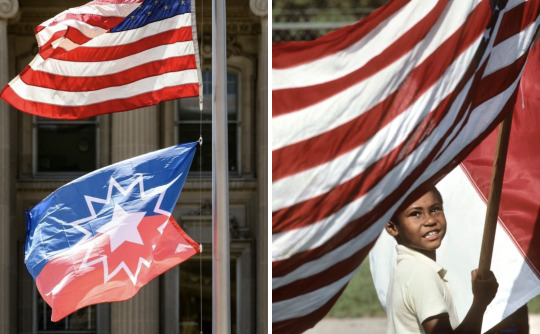


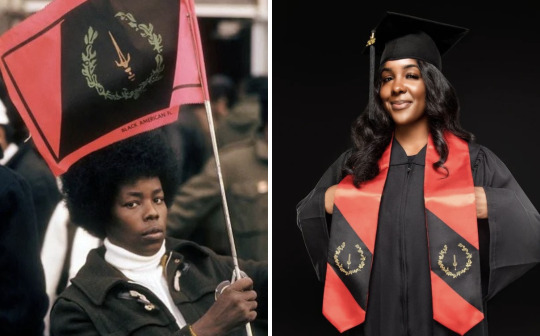
Juneteenth is a Black American holiday.
We call Juneteenth many things: Black Independence Day, Freedom Day, Emancipation Day, Jubilee Day. We celebrate and honor our ancestors.
December 31 is recognized as Watch Night or Freedom’s Eve in Black American churches because it marks the day our enslaved ancestors were awaiting news of their freedom going into 1863. On January 1, 1863, President Lincoln issued the Emancipation Proclamation. But all of the ancestors wouldn’t be freed until June 19, 1865 for those in Galveston, Texas and even January 23, 1866 for those in New Jersey (the last slave state). (It’s also worth noting that our people under the Choctaw and Chickasaw Nations wouldn’t be freed until April 28, 1866 and June 14, 1866 for those under the Cherokee Nation by way of the Treaties.)
Since 1866, Black Americans in Texas have been commemorating the emancipation of our people by way of reading the Emancipation Proclamation and coming together to have parades, free festivities, and later on pageants. Thereafter, it spread to select states as an annual day of commemoration of our people in our homeland.
Here’s a short silent video filmed during the 1925 Juneteenth celebration in Beaumont, Texas:
youtube
(It’s also worth noting that the Mascogos tribe in Coahuila, Mexico celebrate Juneteenth over there as well. Quick history lesson: A total of 305,326 Africans were shipped to the US to be enslaved alongside of American Indians who were already or would become enslaved as prisoners of war, as well as those who stayed behind refusing to leave and walk the Trail of Tears to Oklahoma. In the United States, you were either enslaved under the English territories, the Dutch, the French, the Spanish, or under the Nations of what would called the Five “Civilized” Native American Tribes: Cherokee, Creek (Muscogee), Chickasaw, Choctaw, and Seminoles. Mascogos descend from the Seminoles who escaped slavery during the Seminole Wars, or the Gullah Wars that lasted for more than 100 years if you will, and then settled at El Nacimiento in 1852.)
We largely wave our red, white and blue flags on Juneteenth. These are the only colors that represent Juneteenth. But sometimes you may see others wave our Black American Heritage flag (red, black, and gold).
Juneteenth is a day of respect. It has nothing to do with Africa, diversity, inclusion, immigration, your Pan-African flag, your cashapps, nor your commerce businesses. It is not a day of “what about” isms. It is not a day to tap into your inner colonizer and attempt to wipe out our existence. That is ethnocide and anti-Black American. If you can’t attend a Black American (centered) event that’s filled with education on the day, our music, our food and other centered activities because it’s not centered around yours…that is a you problem. Respect our day for what and whom it stands for in our homeland.
Juneteenth flag creator: “Boston Ben” Haith
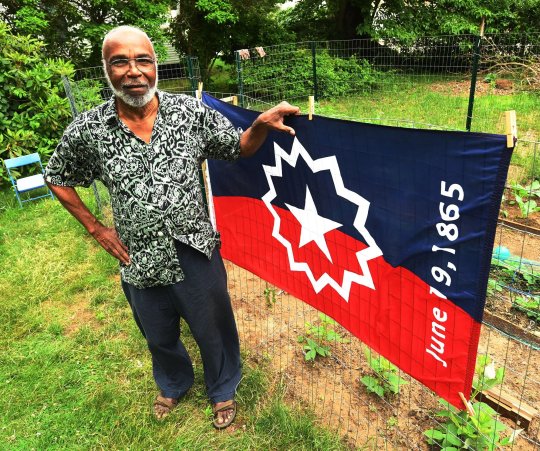
It was created in 1997. The red, white and blue colors represent the American flag. The five-point star represents the Lone State (Texas). The white burst around the star represents a nova, the beginning of a new star. The new beginning for Black Americans.
Black American Heritage Flag creators: Melvin Charles & Gleason T. Jackson

It was created in 1967, our Civil Rights era. The color black represents the ethnic pride for who we are. Red represents the blood shed for freedom, equality, justice and human dignity. Gold fig wreath represents intellect, prosperity, and peace. The sword represents the strength and authority exhibited by a Black culture that made many contributions to the world in mathematics, art, medicine, and physical science, heralding the contributions that Black Americans would make in these and other fields.

SN: While we’re talking about flags, I should note that Grace Wisher, a 13-year-old free Black girl from Baltimore helped stitched the Star Spangled flag, which would inspire the national anthem during her six years of service to Mary Pickersgill. I ain’t even gon hold you. I never looked too far into it, but she prob sewed that whole American flag her damn self. They love lying about history here until you start unearthing them old documents.
In conclusion, Juneteenth is a Black American holiday. Respect us and our ancestors.
#juneteenth#juneteenth flag#black american history#black american culture#ben haith#black american heritage flag#melvin charles#gleason t jackson#grace wisher#american flag#mascogos#juneteenth 2023
1K notes
·
View notes
Text
My opinion on the term Soulaan/Soula as a nickname for African Americans(the ones that were here in America since slavery)
Here's a definition from @realbrwnsugar on tiktok: Soulaan/Soula people is another term for African American; descendants of American Slaves. The term was made because of it comes from parts of AA culture like "soul food, soul music, etc". SOUL(AA) N(nation).
Here's their TikTok of subgroups I featured.
There are also subgroups of American-descended slaves that would fit into the Soulaan definition like the:
Gullah, Geechee, Gullah Geechee
Mascogos(Black Seminoles who escaped to Coahuila, Mexico)
Louisiana Creole
Afro-Novas(American Slaves who escaped to Nova Scotia, Canada)
Afro-Seminole
Americo-Liberians (Slaves who were sent to the nation of Liberia)
Samaná Americanas(American slaves who immigrated to the Dominican Republic in 1824)
And probably many more considering American Slaves went wherever they could to escape slavery.
Here's my personal opinion; I like the term Soulaan/Soula as a nickname for African-American. It directly defines the specific group being talked about(Descendants of American Slaves), and there's no "Oh, we're technically this too!" going like with African-American(because anyone from Africa who's like a second-generation immigrant or whose mom or dad is American can also fit under the ethnicity term of African-American). Soulaan/Soula is solid and seems like a good solution for how to refer to ourselves as Descendants of American Slaves without the possible confusion of referring to someone who's more recently descended from Africa.
Yes, we are still African-Americans. Yes, we are still black, but we need a way to distinguish ourselves and our culture. Especially when the African-Americans solely aren't from Descendants of American Slaves anymore.
Anyway, feel free to add your opinion if you're Black American(descended from American Slaves)/Soulaan, or from the listed groups above.
#soulaan#soula#soulaani#black girls of tumblr#blackblr#african american#gullah geechee#feedback welcome#and#feedback appreciated#Also I do understand that it's mainly late millennial to gen z who like the term
16 notes
·
View notes
Text
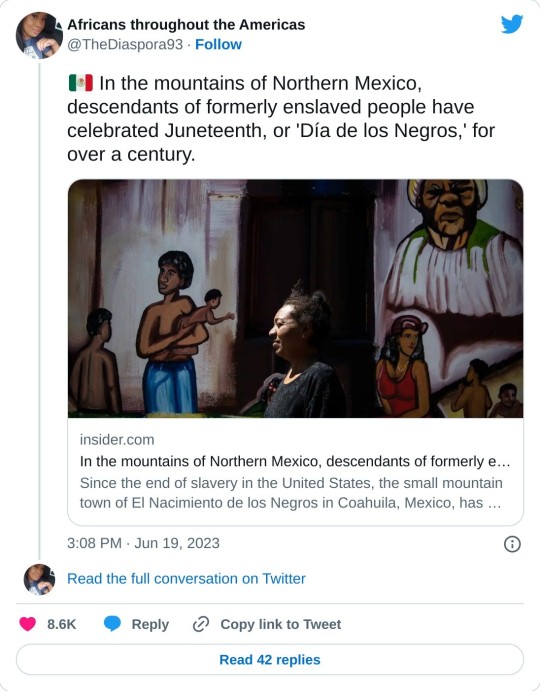

Black Seminole tribal members of El Nacimiento de los Negros have celebrated their version of Juneteenth since the 1870s.
When Mexico outlawed slavery decades before the United States, thousands of Black Texans found a new route to freedom.
Their descendants meet in Coahuila, Mexico, every year for Juneteenth celebrations.
Just over 100 miles from the Texas-Mexico border, a small mountain town in Coahuila, Mexico, is preparing for their annual Juneteenth celebrations.
El Nacimiento de los Negros, translating to "Birth of the Blacks," is home to a community of Afro-Indigenous families that trace their roots back to the United States. Known as "Mascogos," the group are descendants of Black Seminoles who found a home in Mexico after fleeing slavery and the threat of slave catchers in the US.
Black Seminoles were formerly enslaved people who escaped the plantations they worked on and aligned themselves with the Indigenous Seminoles of Florida. The joined forces with the Indigenous tribes to fight the US in the Seminole Wars.
In the 1800s, many Black Seminoles were forced to relocate from places like Georgia and Florida to areas designated Indian Territory in Oklahoma. During that time, Black Seminole chief John Horse, who had both Indigenous and Black ancestry, led a group of people to Mexico, where slavery had already been outlawed. A group settled in El Nacimiento in 1852.

The Southern Underground Railroad
When the General Congress of the United Mexican States completely outlawed slavery in 1837, enslaved people in Texas had a viable route to freedom by going southward. Notably, in the 1936-1938 federal Slave Narrative project, emancipated freeman and San Antonio-born Felix Hayward remarked: "There wasn't no reason to run up north… All we had to do was to walk, but walk south, and we'd be free as soon as we crossed the Rio Grande." By 1849, African Americans began to make the journey into Mexico.
Experts estimate that up to 10,000 people crossed the border to Mexico to secure their freedom and escape slavery, creating what is known as the Southern Underground Railroad.
Contrary to the Union's agreement to return runaway slaves under the Fugitive Slave Act of 1850, Mexican law provided freedom for escaped slaves once they touched Mexican soil. Many of those escaped enslaved people, alongside Indigenous groups of Mexico, helped defend the Northern Mexican border in exchange for acres of land in Coahuila.

Celebrating Juneteenth in Mexico
Juneteenth marks the official end of slavery on June 19th, 1865 when 250,000 Black people in Galveston, Texas were informed of their freedom by executive decree. Historians estimate that as some Black Seminoles traveled back and forth from El Nacimiento to Brackettville, Texas, Juneteenth celebrations spread to Mexico as early as the 1870s.
For more than 100 years, Mascogos in El Nacimiento have celebrated what they call "Dia de los Negros," or "Day of the Blacks," on June 19th. Many Black Seminole descendants still embark on the pilgrimage from parts of Texas to El Nacimiento to celebrate the day. Traditional cuisine includes a sweet potato bread called tetapún and slow-cooked asado pork. The dishes combine Indigenous, Black, and Mexican cultural inspirations.
After generations in northern Mexico, many members of the Black Seminoles in El Nacimiento strictly speak Spanish. However, the hymns passed down from African American descendants are still sung in English on Dia de los Negros, including "Swing Low, Sweet Chariot" and "This Little Light of Mine."
As more Black Seminole descendants are leaving El Nacimiento to find work in Texas or other parts of Mexico, many Mascogos are worried their culture is waning.

To prioritize preservation, members have established the Museo Comunitario Tribu Negros Mascogos for local art, a hotel, a restaurant, and secured federal funding for community gardens. In 2017, the governor of Coahuila declared the Mascogo tribe as Indigenous people of the northern Mexican state.
As Juneteenth was officially recognized as a US federal holiday in 2021, tribal members are planning to promote cultural tourism as a source of support and revitalization for the enduring town, and prevailing traditions, of El Nacimiento de los Negros.
#In the mountains of Northern Mexico#descendants of formerly enslaved people have celebrated Juneteenth#or 'Día de los Negros#' for over a century#mexico#Black People in Mexico#Dia de los Negros#Juneteenth in Mexico
5 notes
·
View notes
Text

A member of the Mascogos, an Afro-Mexican community in Coahuila state. Photo: Carolyn van Houten/The Washington Post via Getty Images
1 note
·
View note
Text
https://www.washingtonpost.com/graphics/2019/world/amp-stories/descendants-of-american-slaves-fled-to-mexico-mascogos/
0 notes
Text
The Mexican National exposes a lot, I said I was going to do something different and always label her as a Mexican National, and now I think someone sat down with her and said, “don’t get with mascago.” Now, in her being told that she’s ready to come across a Mascogo and be allies. She’s ready to watch soap and listen to Banda with the mascago woman, and because that is the moral of never getting with negro, mascago men, is. From the Mexican National, to Jackie.
Now, in me learning some things, the slave trade, a Mexican giving me the second job I needed shouldn’t be means for me to get with a Mexican. Don’t you hate learning? You learn, and when you learn you can think things. Now, in me replacing marijuana for gym, and I go to the gym five to six days a week, I would be able to get a car in a year. I don’t want the relationship between Mexican and mascago to get me a job, and suddenly I get with a Mexican. So, Mexico makes my world?
0 notes
Text
Juneteenth & a Revisit to History - D-Day & Harry T Moore
Juneteenth is a federal holiday in the United States commemorating the emancipation of enslaved African Americans. Juneteenth marks the anniversary of the announcement of General Order No. 3 by Union Army general Gordon Granger on June 19, 1865, proclaiming freedom for enslaved people in Texas. Originating in Galveston, the holiday has been celebrated annually on June 19 in various parts of the United States since the 1860s, often broadly celebrating African-American culture. The day was first recognized as a federal holiday in June 2021, when President Joe Biden signed the Juneteenth National Independence Day Act into law.
Early celebrations date to 1866, at first involving church-centered community gatherings in Texas. They spread across the South and became more commercialized in the 1920s and 1930s, often centering on a food festival. Participants in the Great Migration out of the South carried their celebrations to other parts of the country. During the Civil Rights Movement of the 1960s, these celebrations were eclipsed by the nonviolent determination to achieve civil rights, but grew in popularity again in the 1970s with a focus on African American freedom and African-American arts. Beginning with Texas by proclamation in 1938, and by legislation in 1979, each U.S. state and the District of Columbia have formally recognized the holiday in some way. With its adoption in certain parts of Mexico, the holiday became an international holiday. Juneteenth is celebrated by the Mascogos, descendants of Black Seminoles who escaped from slavery in 1852 and settled in Coahuila, Mexico.
Celebratory traditions often include public readings of the Emancipation Proclamation, singing traditional songs such as "Swing Low, Sweet Chariot" and "Lift Every Voice and Sing", and the reading of works by noted African-American writers, such as Ralph Ellison and Maya Angelou. Some Juneteenth celebrations also include rodeos, street fairs, cookouts, family reunions, park parties, historical reenactments, and Miss Juneteenth contests. In 2021, Juneteenth became the first new federal holiday since Martin Luther King Jr. Day was adopted in 1983.
For more podcasts visit, www.steveryan.com
Check out this podcast episode!
0 notes
Photo

Happy #Juneteenth! 🙌🏾✊🏿🙏🏽 Juneteenth, also known as Juneteenth Independence Day or Freedom Day, is an American holiday that commemorates the June 19, 1865, announcement of the abolition of slavery in the U.S. state of Texas, and more generally the emancipation of enslaved African Americans throughout the former Confederate States of America. Its name is a mixture of "June" and "nineteenth", the date of its celebration. Juneteenth is recognized as a state holiday or special day of observance in 45 states. Observance is primarily in local celebrations. Traditions include public readings of the Emancipation Proclamation, singing traditional songs such as "Swing Low, Sweet Chariot" and "Lift Every Voice and Sing", and reading works by noted African-American writers such as #RalphEllison and #MayaAngelou. Celebrations include rodeos, street fairs, cookouts, family reunions, park parties, historical reenactments, or Miss Juneteenth contests. Another fun fact: The #Mascogos, descendants of Black #Seminoles, of Coahuila, Mexico also celebrate Juneteenth. How are you celebrating today? 🏴🌍 https://www.instagram.com/p/By5VVwplwfQ/?igshid=8n7r7irjuxh8
1 note
·
View note
Text
Now Reading:
Kevin Sieff for The Washington Post “Their Ancestors Fled U.S. Slavery for Mexico. Now They’re Looking North Again.” (2019)
https://www.washingtonpost.com/world/the_americas/their-ancestors-fled-us-slavery-for-mexico-now-theyre-looking-north-again/2019/03/15/6c64a14c-45cf-11e9-94ab-d2dda3c0df52_story.html?utm_term=.1d505bcb32c8
#kevin sieff#immigration#afro-latinx#mascogos#mexico#washington post#american history#2019#now reading#my stuff
1 note
·
View note
Photo
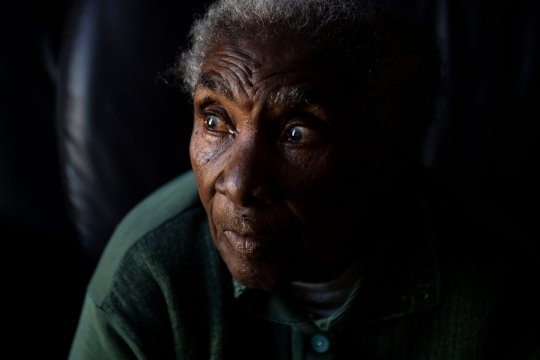

"Her ancestors fled to Mexico to escape slavery 170 years ago. The matriarch of the Mascogos tribe still sings in English to this day. - The Washington Post"
https://www.washingtonpost.com/graphics/2019/world/amp-stories/descendants-of-american-slaves-fled-to-mexico-mascogos/
0 notes
Photo
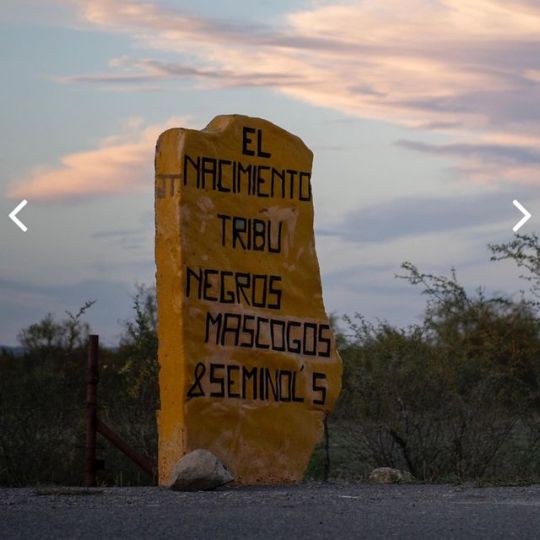
#mascogos The #Mexicans who acknowledge and celebrate their #African ancestors... passing on the history of when Africans #migrated to #Mexico to settle. (at Mexico) https://www.instagram.com/p/BwMzFfFl5LtBJPpnE2vccqZx2RnVXQybOpivmM0/?utm_source=ig_tumblr_share&igshid=1mlhzijbwf0kq
0 notes
Photo

“Enrique Salazar, a 17-year-old senior in a New York Yankees shirt, said: "As soon as I get the chance to go to the U.S., I'm out of here. I care about the culture of our tribe, but I also need to make some money." Reading this article brings us sadness thinking about our own families migration story, of the ppl, land and community you leave behind. The horrors of genocide, enslavement, reprogramming and resettlement by governments. Who then eventually will profit off the land people leave? Or is this just how human being have existed time immemorial migrating for better opportunities, fighting each other to dominate and take power....There must be another way. #migrationstory #consumptionism #dismantlewhitesupremacy #decolonize #humanevolution #dominicanslovehaitians #slavehistory #mexico #mascogos #seminole #blackseminoles #indigenous https://www.instagram.com/p/BvJ9Ot-F67G/?utm_source=ig_tumblr_share&igshid=da1s1x2jzhi7
#migrationstory#consumptionism#dismantlewhitesupremacy#decolonize#humanevolution#dominicanslovehaitians#slavehistory#mexico#mascogos#seminole#blackseminoles#indigenous
0 notes
Text
Someone on twitter suggested that someone should make a mystery series taking place in 18th century Louisiana. Perhaps during the Franco-Spanish transition.
4 notes
·
View notes
Text

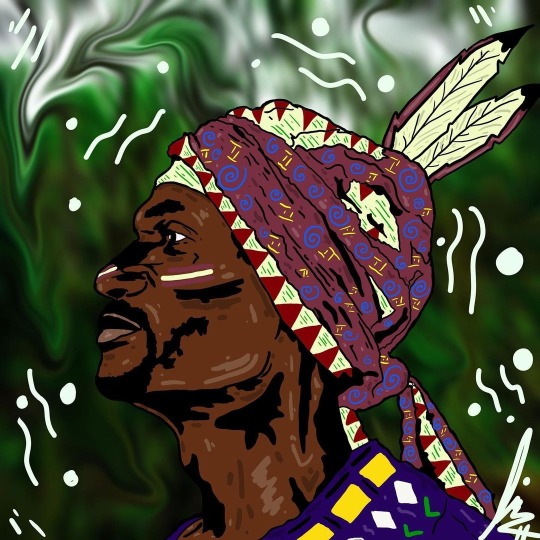



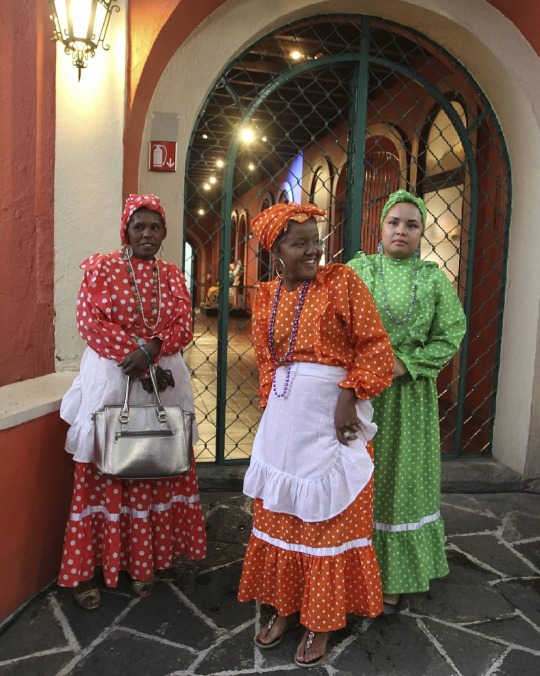

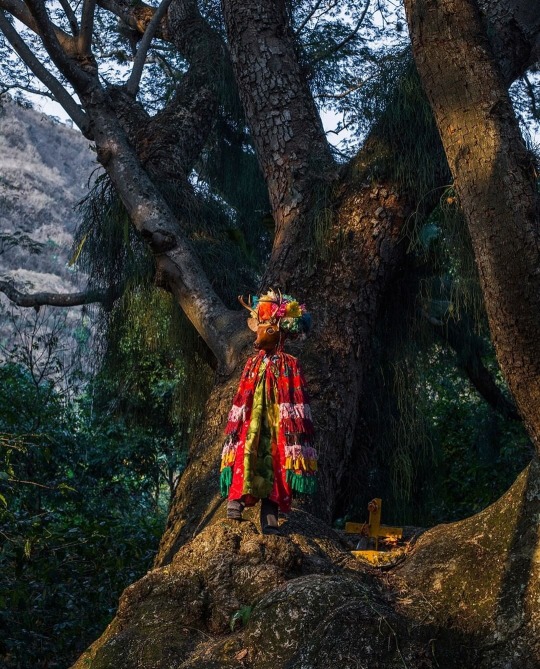

Afro-Mexicans/Mascogos.
Gotta love the diaspora
10 notes
·
View notes
Text
You see a man get “grace” and by his grace he did something about that kike as a kike himself. He kicked Jesuits out of Spain, and all of the Spanish who fought and lived amongst mascogo’s in the colony.. were not allowed back into the country. Spain. I can understand grace, to see these people who don’t call on God.. grace just exposes the law and the enemy. Charles the III had that same kike nose that Pinhead Putin has. Go figure

0 notes